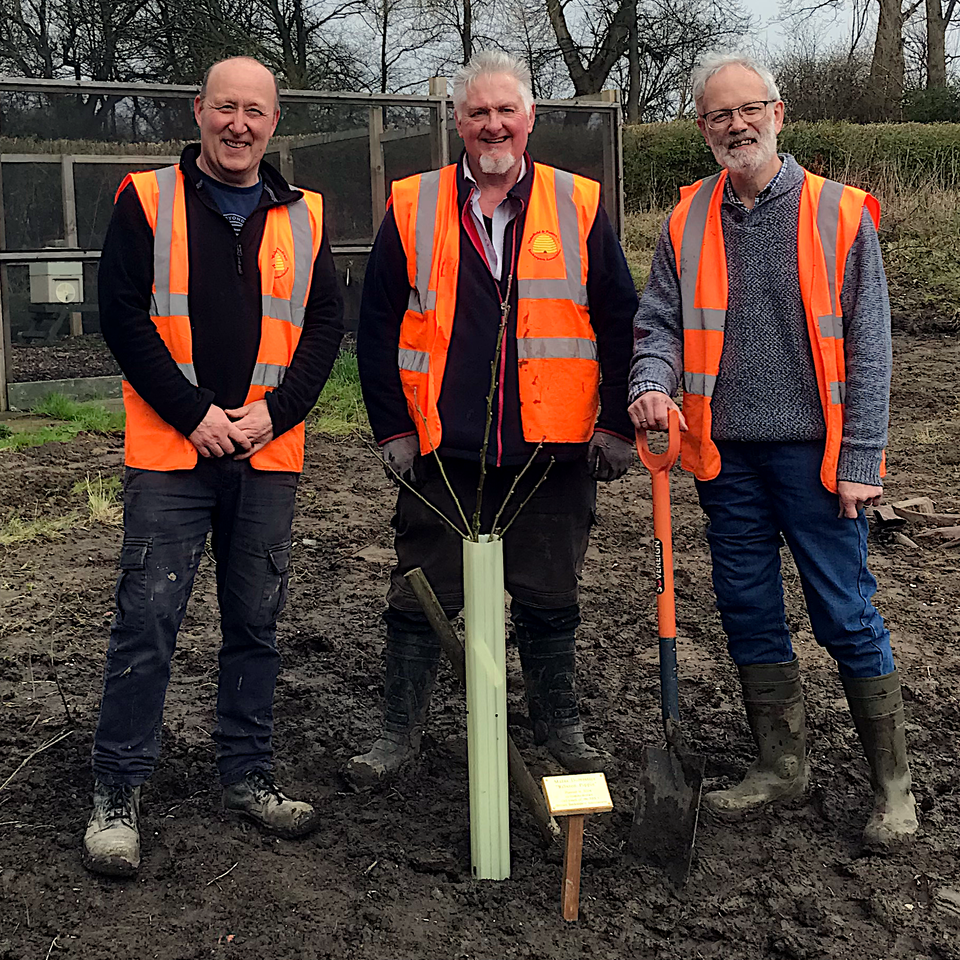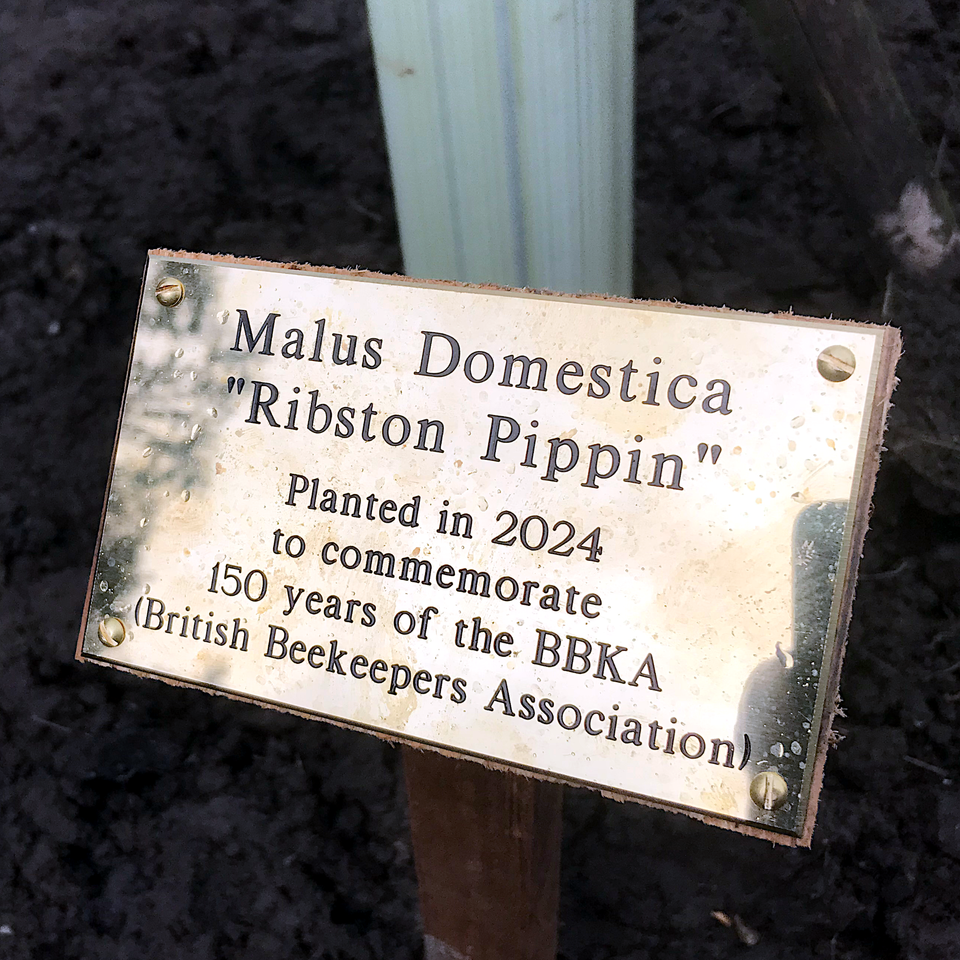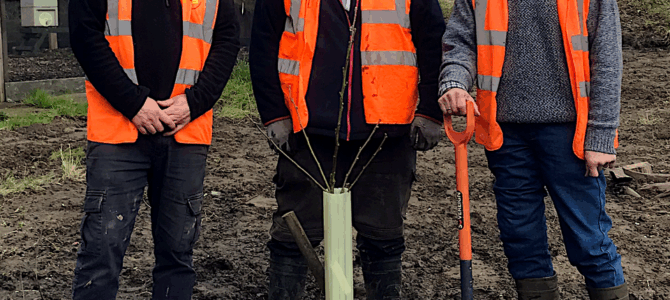
After years of negotiation with Wakefield Council, we were delighted to move into our new apiary site two years ago – a milestone that marked a fresh chapter for Wakefield Beekeepers Association. Since then, the site has become the beating heart of our association: a place where beginners learn the craft, experienced members share knowledge, and our bees thrive among the fields and hedgerows of West Yorkshire.
The running and development of the apiary are funded through two much-loved traditions – our annual Beginners Course, which introduces new beekeepers to the fascinating world of the hive, and the sale of our delicious local honey, produced right here by the colonies under our care.
Growing the Site
This year, we’ve turned our attention to developing the remaining area of the site. Plans include creating a welcoming patio and seating area for visitors and members, and planting the land directly in front of the hives with pollinator-friendly species. These improvements will make the apiary not just a place of learning, but a calm and beautiful environment to sit, observe, and enjoy the company of bees.
A Tree for the Bees – and for History
To mark 150 years of the British Beekeepers Association (BBKA), we wanted to plant something meaningful: a native tree that would both commemorate the occasion and provide lasting benefit to the bees and other pollinators that share the site.
One of our members, Peter Lewis, suggested the Ribston Pippin – a heritage Yorkshire apple variety with a remarkable story and deep local roots.
The Ribston Pippin: A Yorkshire Original
According to legend, around 1690, Sir Henry Goodrick sent an apple from Rouen in Normandy to his home at Ribston Hall near Knaresborough, North Yorkshire. A seed from that apple was planted, and from it grew a tree whose fruit became famed for its rich, aromatic flavour. The Ribston Pippin went on to inspire many later varieties – including the better-known Cox’s Orange Pippin.
Few trees could be more fitting: Yorkshire-born, centuries old in heritage, and loved by both people and pollinators.
Planting Day

On Friday 15 March 2024, a small team of volunteers gathered at the apiary to work on the site and to plant the Ribston Pippin. The day was marked with muddy boots, plenty of chatter, and that quiet sense of satisfaction that comes from doing something that will last.
The new tree now stands as both a symbol of our ongoing growth and a living link to the long tradition of British beekeeping. As it blossoms each spring, it will feed our bees – and remind us of the roots, both literal and historical, that connect us to the wider beekeeping community.

